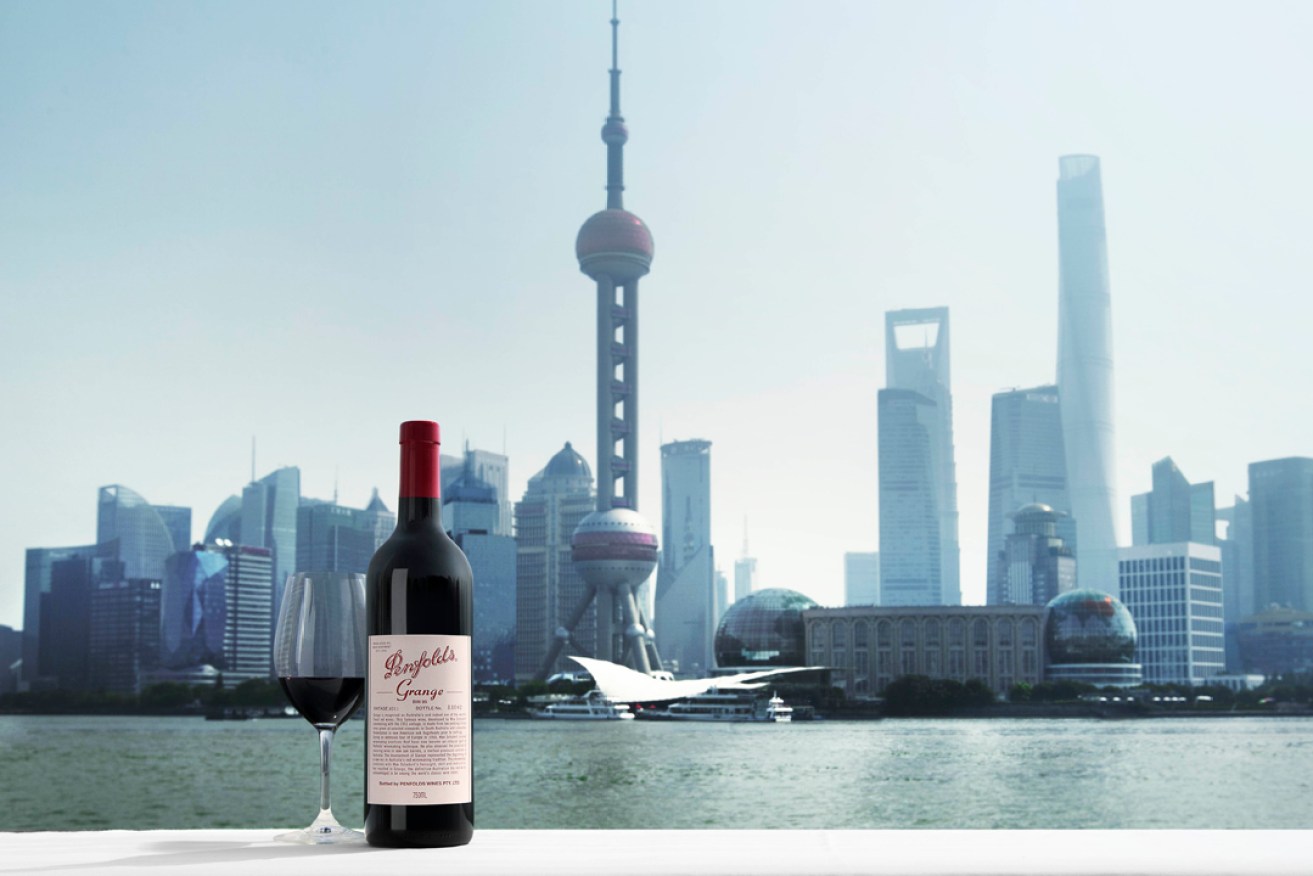Minister frustrated that China won’t pick up phone as trade bans grow
Australia’s Trade Minister says it’s “deeply frustrating” that China refuses to discuss its “unacceptable” targeting of Australian exports, with lamb joining wine, beef, coal, barley and timber on the unofficial hit list and wheat and cotton producers bracing as the trade dispute worsens.


TWE has posted a $250 million profit in a year dogged by huge tariffs on its wines in China. Photo: Treasury Wine Estates
China this week added another Australian beef exporter to its growing list of banned suppliers, hitting meatworks jobs and production, while freezing out lamb as Chinese state media pushed an unsubstantiated theory that COVID-19 may have originally arrived in China in 2019 via cold meat imports.
It comes two weeks after China slapped duties on Australian wine of between 107 and 212 per cent following an “anti-dumping” inquiry, with TWE – owner of SA brands Penfolds, Wolf Blass and Wynns – hit with a 169 per cent tariff, prompting it to pull some wines from the China market and increase efforts to sell to other markets.
China has also targeted Australian barley, timber and lobsters, while more than 80 vessels carrying Australian coal have been anchored off Chinese ports for more than a month, unable to unload.
Export markets worth billions are now in jeopardy, with fears of the impact on the national economy and credit rating.
But China has not announced any official policy or position towards Australian exports, instead citing issues with quality or contamination in different cases, while senior ministers have refused to engage with their Australian counterparts on the rapidly worsening issue.
Diplomatic relations have soured dramatically over the past several years, with the Chinese government angered by Australia’s blocking of communications giant Huewei from the 5G network, foreign investment decisions, criticism over human rights and Prime Minister Scott Morrison’s leading international calls for an investigation into the origins of coronavirus.
China’s deputy ambassador to Australia last week advised the Morrison Government to take “concrete steps” to repair its relationship.
Trade Minister Simon Birmingham today said China had displayed “a pattern of behaviour right through this year and it is that cumulative effect that has generated such concern in the Australian Government”.
“This pattern of behaviour that we’ve seen throughout 2020, in particular, has been unacceptable in relation to the way China has engaged,” he said, adding that “different Australian sectors appear to have been targeted without merit and without proper reason” .
“It’s of real concern and it is deeply frustrating that, that China refuses to engage in the type of dialogue that could allow us to try to work through these issues,” he said.
However, Birmingham said that Australia understood that China “has their policies and processes, as we do”.
“We’re not about to change our values or our approaches to foreign investment or national security – we wouldn’t do that for any country,” he said.
“And the approaches we take are not specific to any country, they’re just about protecting Australia’s sovereignty, just as China does, does to themselves.”
Birmingham defended Australian exporters and their products, and said Australia would keep trying to resolve the issue despite China’s lack of communication.
“We’re going to… defend the integrity of our exporters and the fact they don’t dump their products, they aren’t subsidised, they’re nothing but high quality, market-oriented producers around the world,” he said.
“We’ll do that through Chinese processes, we’ll do that through the independent umpire, the World Trade Organisation. And we will keep reinforcing to China that we are willing to come to the table for the dialogue and to try to work through this.
“But at the same time, we’re going to keep supporting our producers to access all of the other countries that we’ve done trade agreements with as well; Japan, Korea, Canada, Mexico, United States, Vietnam, Indonesia. There’s a range of opportunities for Australian exporters, and of course, we’re pursuing new ones with the European Union, with the UK, and we want to make sure that Australian businesses have grown trade – not just to China, but to many of those other countries in recent years.”
China is Australia’s largest wine export market with $1.2 billion worth shipped last financial year – much of it from premium SA wine regions.
The Barossa and McLaren Vale are the number one and two Australian regions for labelled bottled wine by export value to China, with the Coonawarra and Clare Valley also in the top 10.
SA wineries are now planning to cut staff numbers in the new year, reduce or end contracts with growers for the 2021 vintage and hold off on package wine from the 2019 vintage earmarked for the bottling line.
In May, China imposed an 80 per cent tariff on Australian barley following an anti-dumping investigation, hitting national and South Australian barley producers hard. SA produced a little over 2 million tonnes of barley last season, about a quarter of the national production and is the second largest barley-producing state behind Western Australia.
China subsequently ordered barley from Argentina. In September, China banned WA-based CBH Grain Pty Ltd – Australia’s biggest grain exporter – claiming it had found quarantine pests in its barley.




